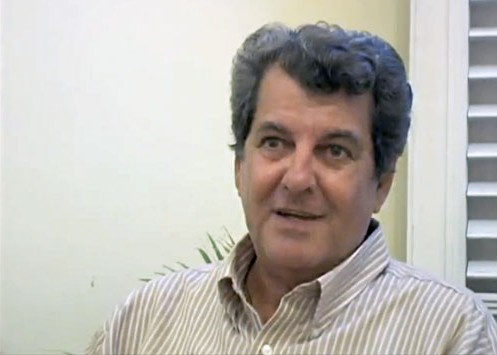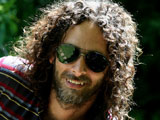Payá: A Corpse That Could Topple the Revolution
by Orlando Luis Pardo Lazo / August 6, 2012 / No comments
Was the car crash that killed two Cuban activists planned?

Cuban dissident and opposition party leader Oswaldo Payá in an interview before his death. Photo: Youtube user CubaMoneyProject
Cuban dissident Oswaldo Payá (1952-2012) has died. A founder of both the Christian Liberation Movement and the Varela Project, Payá held honorary doctorates from the universities of Miami and Columbia (USA), won the European Parliament’s Sakharov Prize in 2002, and was nominated five times for the Nobel Peace Prize. He was also the opposition candidate with the greatest chance of guiding Cuba through a transition to democracy.

- Is it worth-while to focus on the last images and letters coming from the inside of the last living utopia on Earth? Is Cuba by now a contemporary country or just another old-fashioned delusion in the middle of Nowhere-America? A Cold-War Northtalgia maybe? Can we expect a young Rewwwolution.cu within that Ancien Régime still known as The Revolution? I would like to provoke more questions than answers.

- Orlando Luis Pardo Lazo was born in Havana City and still resides and resists there, working as a free-lance writer, photographer and blogger. He is the author of Boring Home (2009) and is the editor of the independent opinion and literary e-zine Voces.
Payá died on July 22nd in a car accident 800 kilometers from his home in Havana. With his death he has been added to a list of fatalities among the island’s dissidents that always points towards State Security, a secret body that acts outside of the law and beneath morality in order to maintain the status quo, which is still referred to as “the Revolution.”
Both Payá’s wake, which was held in a Catholic chapel, and his funeral were attended by large congregations and featured never-ending applause and calls for “Freedom!” In retribution, dozens of people were beaten and arrested in the middle of the funeral procession.
Payá’s widow, Ofelia Acevedo, along with their daughter and two sons are calling for an independent inquiry into the accident. The family has received death threats and months before his death Payá was the victim of another inexplicable auto accident, from which he miraculously emerged unscathed.
On the 22nd Payá was traveling with Cuban activist Harold Cepero, who was also killed, and two European politicians—Jens Aron Modig (Sweden) and Ángel Carromero Barrios (Spain)—who were unharmed. A week later, at the time of writing this, they were still held in isolation with no charges brought against them.
[Update, August 3, 2012: Modig was sent to Sweden on July 31; Carromero, who was driving the car, remains in Cuba, charged with vehicular manslaughter. Both individuals have publicly claimed no other vehicles were involved in the accident.]
The key issue is that it appears that Modig and Carromero made calls and sent messages from their cell phones at the moment of the “accident” and reported that there had been an attack where another vehicle rammed them repeatedly until they veered off of the desert highway.
If this testimony is verified, the scandal could force the resignation not only of the Cuban Justice Secretary, but also that of the historic leaders of the nation, who could be accused of homicide, which in practice would bring about an end to the Revolution.
What Payá did not achieve in life through peaceful opposition, his corpse may now accomplish.




